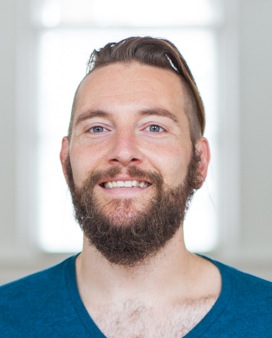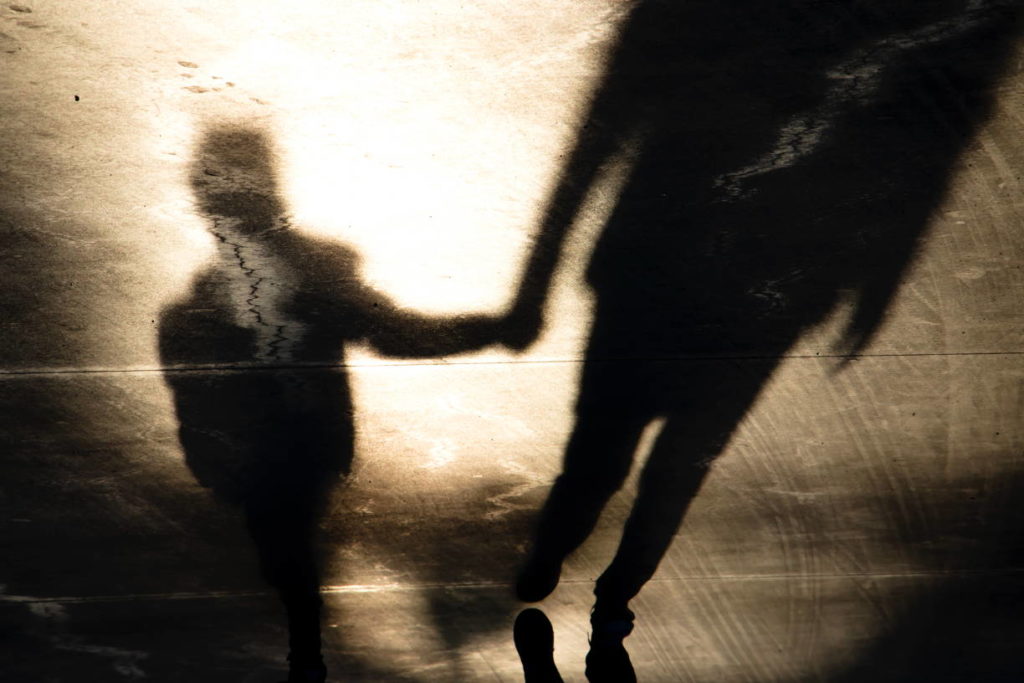Before we talk about his offer for Summer Evolution 2021, we would like to introduce Sadhu to everyone who doesn’t know him yet with an interview about shadow work.
In the interview he talks about, among other things, his training on this topic, how it can support you as an individual and also communities like ours.
Danny: Can you tell us what it is about and how you work?
Sadhu: The aim of my work is reclaiming the lost and hidden parts of oneself, those parts of which we often cut ourselves of from because of trauma. When I work with people, a lot of what I do is supporting them to go into their lost places where they have shut down. It’s important to bring more light in these places. We all have our protective mechanisms, keeping ourselves safe in past, so we don’t we need to face those painful parts. Shadow work invites you to go into these places in a safe way, so your energy is not invested into getting away from them.

To give an example from myself: I can be very controlling. I find it difficult to let go. In my family surrender is a very dangerous thing to do. The controlling mechanism has protected me from danger… but now it closes me down in love relationships. It stops from surrendering where I want to engage. A lot of the work is going to the places we’d rather not look at. If we can liberate it we can actually engage in what we really want.
In relationships, we often engage in getting away from the difficult themes and that takes our energy.
D: How did you get into shadow work?
S: I first started practicing shadow work in 2003 when visiting a shaman in Guatemala. The first focus was sex magic and shadow work. I stayed with him about 9 months. He worked a lot with dreams too. We lived together in a group. We would move around all the time. He offered ‘divine appointments’. He would say “We will go to the beach… and we will meet someone there…“. And it happened. When I arrived we were about 14, but the group size varied. There were also periods where we were smaller. I learned that the things we try to run away from are informing the way we operate in relationships. The shaman worked a lot with ‘male male tantra’. Father son wounding was an important focus. With shape shifting into the energetic body, I learned to access the key formative male relationships in my childhood, like my father and uncle.

My practice developed more since meeting a sacred sexual priestess in Glastonbury. One of her great gifts is being a shadow huntress. I work a lot with her. I have a natural ability to go into the dark places. I shadow hunt myself and I’m part of different groups where we do shadow work and sacred sexual work. Shadow hunting is an organic process: we sit in circle, people start to talk. I start to track in the language their beliefs of themselves. I start to get into the energy of what they say. I feel underneath. I start to track the trail of what’s running within.
D: How are your private sessions?
S: They consist of two parts. I talk and track verbally but then it’s really important to embody. This can be in breath work practices, in affirming boundaries, me working as a sexual shaman using the energy between us, doing deep bodywork, ‘genetical dearmouring’, meditation and self affirmation…
For instance someone comes to me telling that they are struggling in their relationship or not living the life they want in any form. I want to know what is alive in them. We meet the beliefs they are living. For example: „I have to work really hard to make a living.“ „Or I have to work really hard otherwise people won’t like me.“ What is going on emotionally and what the belief systems are underneath is also touching the old traumas from childhood. Shadow work is difficult work as we touch what we have been hiding at the time because we couldn’t deal with it. It’s important to realize in shadow work that we have shadow parts and healthy parts and that we look at the shadow parts from a healthy perspective.
D: Can you tell us more about shadow work in communities?
S: The main thing is that we are not aware of our shadows and that it’s them ‘running the show’. That is why a lot of communities are getting really stuck. People in communities are mostly not working on their dark side, especially not in spiritual communities. They tend to be over focused on the light side, thereby avoiding looking at the other parts. It is important to work and go through those dark places in order to grow. A lot of reasons we don’t go there is because a shadow is connected to shame, something we decided to not speak about. But it is essential. One of my visions is to live in a sacred sexual community that invests in shadow work. We all have blind spots and don’t see our patterns: if you don’t focus on them, they will keep running free. It’s essential to be in community to see our blind spots. Even as a shadow worker, I can easily ignore my own shadow. That’s the nature of a shadow.

D: What does shadow work have to offer to the gay community? Especially given all the shame we carry
S: There is a lot of operating from the shadow. In the mainstream gay culture there is this paradigm of gay men always looking for the next best thing, a kind of constant hunger for more. A lot of that comes from growing up in environments where our sexuality wasn’t embraced. So sexuality has to be hard and fast, as that is what the shadow tells us. The level of shaming that goes on is quite huge in the gay scene. It starts when growing up. We realize that we are different than our mother. And sexually we are different from our father. There can be this real place of otherness. If that isn’t embraced, it becomes a real place of isolation. It makes us into men that are not ready to be in a society. We are lacking good role models. Our relationship model comes from our parents. They are the ones who are supposed to carry us through our puberty and initiation. But for most of us gay men the entry into the sexual world isn’t a celebration.
The conscious choosing of what you want is the basis for wellbeing as a gay man. That is why shadow work is so vital because it liberates us from the patterns we are caught up in, both in relationships and sexuality. Both sexuality and relationship models are formed at the same time, while we grow up. Children are sexual beings even before puberty. If that isn’t properly honored, it builds an uncomfortable relationship as an adult.
All of the work I do will touch on shadow. To do balanced self-development work, we need to work with both the light and the dark. I really like kinky play. I know people who work with shadow role-play and BDSM. Often in kink community there is a lot of consciousness involved. Our dark places can be very beautiful to explore. For many years I have been very involved in the yoga and meditation scene, where the shadow isn’t dealt with. I felt something was missing out. I then realized that when we ignore our shadow parts, we also don’t get the treasures. Shadow work is about deep self inquired practices, to feel the many parts of ourselves. It is very easy to just identify with the wounded parts, to forget that we are many parts and there are possibilities within the human experience. It’s an important exercise to become aware of the places in your life where you are keeping yourself small.
I often encounter so much taboo and shame about these ‘fear places’. It’s all about these places of loss and grief and anger that we aren’t given a forum to talk about. Shadows are unmet places, places that have been shut of from light and energy. The work there isn’t to try and destroy them, but to bring love there, work on them and integrate again. “You are a part of me and I have a space for you”. Ultimately we can choose what we operate from. I don’t want to spend my life to run away form the loss I felt as a child. There is a concept called ‘reparenting’: recognizing those things we didn’t get as a child and then as an adult learning how to give our younger self what it needs now.


Leave a Reply